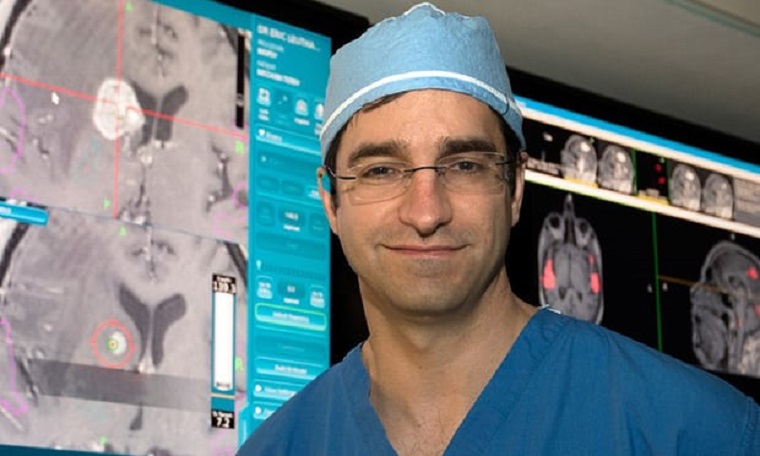The US researcher – and sci-fi author – on how brain implants will drive the next turning point in human evolution
From The Guardian…
Dr Eric C Leuthardt, 45, is a neurosurgeon at Washington University in St Louis. He is also the co-founder of NeuroLutions, a research laboratory developing direct interfaces between mind and computer. Leuthardt is pioneering the use of electrical brain implants to help restore motor function to the paralysed limbs of stroke victims. He is also helping to develop electrode systems that can directly decode the unspoken “inner voice” of the mind, and use it to direct external action; for example, Leuthardt’s subjects have been able to control the cursor of a Space Invaders video game just by thinking. He has published two science fiction novels aimed at “preparing society for the changes” that his work predicts. He believes that in the coming years neural implants that link the human brain directly to computers to enhance cognitive functions will be like pacemakers or tattoos, used with hardly a second thought. This interview was conducted by phone, when Leuthardt had just dropped off his children at school and was on his way to perform an operation to remove a brain tumour.
A direct neural interface with machines has long been a science fiction dream. When did you first get involved in helping to make it happen?
I started down this road back in 2002, when people were testing the first examples on monkeys. We have come a long way since then. We have a number of different implants being used in clinical trials now. In my view, we will reach a real inflection when these things become really clinically relevant.
How far along that route are you?
We have finished our first successful clinical trial with stroke patients. In the near term we will be in discussions with the US Food and Drug Administration to bring this technology to wide clinical use, which will hopefully happen in the next couple of years.
I guess any procedure involving the brain feels like a different category of risk to most people. You must face that anxiety every day.
I think there are two types of surgical practice that really strike at the core of people’s anxiety. One is brain surgery, where you are operating on something that people see as themselves, their sense of identity, their mind. The other one is, I think, paediatric surgery, where the operation is on the thing most precious to you – your children. I think both create a dynamic where you need to work harder to create trust with your patients.
When it comes to innovation that might link a person’s mind directly with a machine, it seems as much an ethical as a medical question. Is that how you see it?
Ethicists are critical in what we do. A working interface would be a real turning point in human evolution. I don’t say that with bombast or hyperbole. And just like with artificial intelligence, we need to take the greatest care in how we think about it. Whether it happens in five years or 50 years, it will happen. I wrote these two science-fiction novels to try to walk people through some of the things that could happen; for example, if others got unauthorised access to these implants, or when corporations got involved. We need to be thinking about these things now, rather than after the fact.
